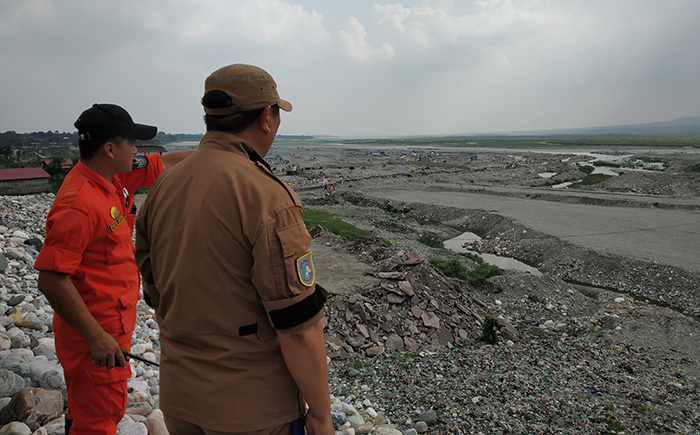… combating Dengue danger in Phuentsholing
Rajesh Rai | Phuentsholing
Following the detection of five confirmed Covid-19 cases in neighbouring Jaigaon last week, vigilance across Phuentsholing has been reinforced.
Hundreds of volunteers and police patrol about 26 point of entries (POE) covering areas from Amochhu embankments to Pasakha and beyond until Pana villages in Sampheling gewog round the clock.
They keep vigil to stop people illegally entering into Phuentsholing, or engaging in other illegal activities. But there is a new danger lurking in some corners for those manning the POEs along the border areas.
Several of the entry points are potential breeding grounds for dengue mosquitoes, Aedes.
Last month, Phuentsholing reported 160 dengue cases. However, these were all IgG positive, which means that the patients had an infection in the past. There is no confirmed active case so far.
A desuup at a POE in Amochhu, Kinley Penjor said that manning the borders and staying safe from dengue have both become equally important.
“We cannot neglect dengue,” he said.
Their only defence is wearing long sleeves and mosquito repellants, but most of the time, the patrolmen end up bitten. Those on the night shift, from 10pm to 6am are those at highest risk.
Desuup Sonam Tshering said that they could not even use mosquito nets because their duty requires them to be awake all night.
Currently, there are 134 desuups, 31 immigration officials, 38 land commission volunteers, along with police on duty at the POEs.
Desuup coordinator in Phuentsholing, Tashi Dorji said that the health officials had provided mosquito repellants a few times.
“But most of the time, we keep the repellants ourselves,” he said.
Tashi Dorji said that the desuups had been informed of the risks.
Dengue prevention measures in Phuentsholing
Authorities have taken early prevention measures this year. In 2019, it came too late. By the time measures were up, the dengue cases had started to rise in Phuentsholing hospital.
Health ministry officials said they were not informed until the number of cases overwhelmed the hospital. Dengue cases inside the hospital had also become the source of infection for many cases.
Soon dengue spread to 19 dzongkhags, except Lhuentse, and by November, there were 5,489 positive cases. Of that 77 percent of the cases were reported from Phuentsholing.
Six people died to dengue last year, and two maternal deaths were also reported from dengue complications.
The health ministry trained 25 prime movers and 107 youths and volunteers from various other organisations; they have been deployed with the thromde recently.
The prime movers are the key members who move around creating awareness, and keep track of households in different dengue prone zones and help in removing mosquito breeding places. They also communicate with all other volunteers.
Department of public health director, Dr Karma Lhazeen, during the handing-taking of the volunteers to thromde dengue taskforce on June 4, said that everyone needs to collaborate, actively participate and engage in dengue prevention and control.
“We are confident that our dengue champions and prime movers will make a tremendous impact on dengue prevention in Phuentsholing,” she said.
Stressing on the prime movers’ commitments at individual, household and community levels, Dr Karma Lhazeen said that Phuentsholing could avert dengue outbreak without much effort.
“The health ministry is committed to providing technical support for similar initiatives if needed, in future,” she said.
The director also said that WHO, UNICEF and UNFPA have supported the dengue prevention programme in Phuentsholing.


